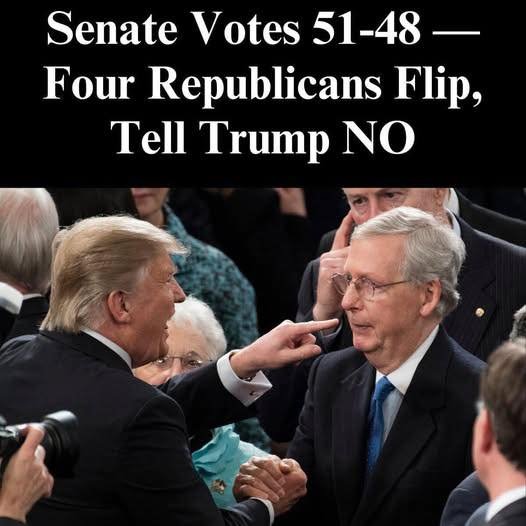The 51–48 Senate vote to block President Trump’s Canadian tariffs represents a notable moment of bipartisan unity—and dissent within the GOP—over the use of unilateral presidential powers. While the practical impact remains to be seen, the vote underscores Congress’s willingness to push back when executive action threatens established economic partnerships and domestic industries.
In a deeply polarized political climate, the measure shows that on issues of trade, national security, and constitutional balance, lawmakers can—and occasionally will—bridge party divides to assert legislative authority. As the nation watches the U.S.–Canada relationship—and America’s place in the global economy—what began as a symbolic gesture may prove a pivotal chapter in the ongoing debate over executive reach and legislative prerogatives in shaping trade policy



